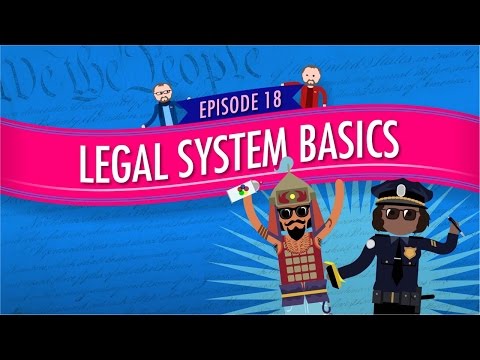
Understanding Municipal Law: A Comprehensive Overview and Example
Welcome to this informative article on understanding municipal law in the United States. Whether you are a curious citizen, a budding legal scholar, or simply someone interested in knowing more about how local governments operate, this overview aims to provide you with a detailed understanding of municipal law.
It is important to note that while this article strives to provide accurate and up-to-date information, it is always advisable to cross-reference with other reliable sources or seek advice from legal professionals when dealing with specific legal matters. Municipal law can vary from state to state, and it is crucial to consult the laws and regulations specific to your jurisdiction.
📋 Content in this article
Now, let’s delve into the fascinating world of municipal law. Municipal law refers to the legal framework that governs local governments, such as cities, towns, counties, and other local entities within the United States. These local governments have the authority to create, enforce, and interpret laws within their jurisdiction, as granted by the state or federal government.
To better understand the concepts of municipal law, let’s explore a practical example. Imagine you live in a small town called Greenfield. The town has its own local government, including a mayor, town council, and various administrative departments.
Municipal law gives Greenfield’s local government the power to enact ordinances that regulate matters specific to the town. These ordinances may cover areas such as zoning and land use, public health and safety, local taxation, licensing and permitting, and many other aspects that impact daily life within the town.
For instance, Greenfield may pass an ordinance that prohibits smoking in public parks to promote a healthier environment for its residents. This ordinance would be enforceable within the town’s jurisdiction and could result in penalties or fines for individuals found in violation.
In addition to creating ordinances, local governments are responsible for enforcing these laws. This includes tasks such as issuing citations or summonses for violations, conducting inspections, and responding to complaints from residents.
The Fundamental Role of Municipal Law: A Comprehensive Overview
The Fundamental Role of Municipal Law: A Comprehensive Overview
Municipal law is a crucial aspect of the American legal system, governing the operations and regulations of cities, towns, and other local government entities. It encompasses a wide range of legal principles and rules that are designed to address the unique needs and challenges faced by local communities.
Understanding municipal law is essential for both individuals and businesses who interact with local governments. It provides the framework for the establishment and maintenance of public services, the resolution of disputes, and the protection of individual rights within a specific jurisdiction.
To grasp the fundamental role that municipal law plays in our legal system, it is helpful to explore its key components and functions:
Understanding Bluebook Rule 12.9 2: A Guide to Legal Citations
Understanding Bluebook Rule 12.9 2: A Guide to Legal Citations
Legal citations play a crucial role in the legal field as they provide a standardized way of referencing legal authorities such as cases, statutes, regulations, and secondary sources. The Bluebook, a widely used citation manual, offers guidelines for legal citations in the United States. Within the Bluebook, Rule 12.9 2 specifically addresses the citation format for municipal codes and ordinances.
Municipal law refers to the laws and regulations enacted by local governments, such as cities, towns, and counties. Understanding municipal law is essential for individuals and businesses operating within a specific local jurisdiction. Municipal codes and ordinances are the primary sources of law in this context, outlining the rules and regulations that govern various aspects of local life.
When citing municipal codes and ordinances, it is important to follow Rule 12.9 2 of the Bluebook to ensure accuracy and consistency. Here are some key points to remember:
Title: Understanding Municipal Law: A Comprehensive Overview and Example
Introduction:
Municipal law governs various aspects of local governments, such as cities, towns, counties, and other political subdivisions. It plays a critical role in shaping the lives of individuals and communities across the United States. This article aims to provide a comprehensive overview of municipal law, highlighting its importance, key principles, and a practical example. Readers are reminded to verify and cross-reference the information presented here, as laws can vary between jurisdictions.
Importance of Staying Current on Municipal Law:
Staying up to date with municipal law is vital for several reasons. Firstly, municipalities are responsible for providing essential public services, including zoning regulations, land use planning, public safety measures, and environmental protection. Understanding the legal framework behind these services enables individuals and businesses to navigate local regulations effectively.
Secondly, municipal laws impact various aspects of everyday life, including property rights, business licensing, taxation, public health, and transportation. Being aware of the latest changes and developments in these areas helps individuals make informed decisions and ensures compliance with legal requirements.
Additionally, municipal law often intersects with other areas of law, such as constitutional law, administrative law, and contract law. Familiarity with these intersections is crucial for legal professionals, policymakers, and individuals seeking legal remedies or engaging in civic participation.
Key Principles of Municipal Law:
1. Local Autonomy: Municipalities possess the power to create and enforce laws within their jurisdiction. This power is derived from state constitutions and statutes, which grant municipalities the authority to govern their affairs independently. However, local laws must not conflict with state or federal laws.
2. Home Rule: Many states grant certain municipalities “home rule” authority, allowing them to adopt and enforce local laws without obtaining prior approval from the state legislature. Home rule provisions vary across states but generally aim to promote local decision-making and address unique community needs.
3. Ordinances and Charters: Municipalities enact laws through ordinances.
